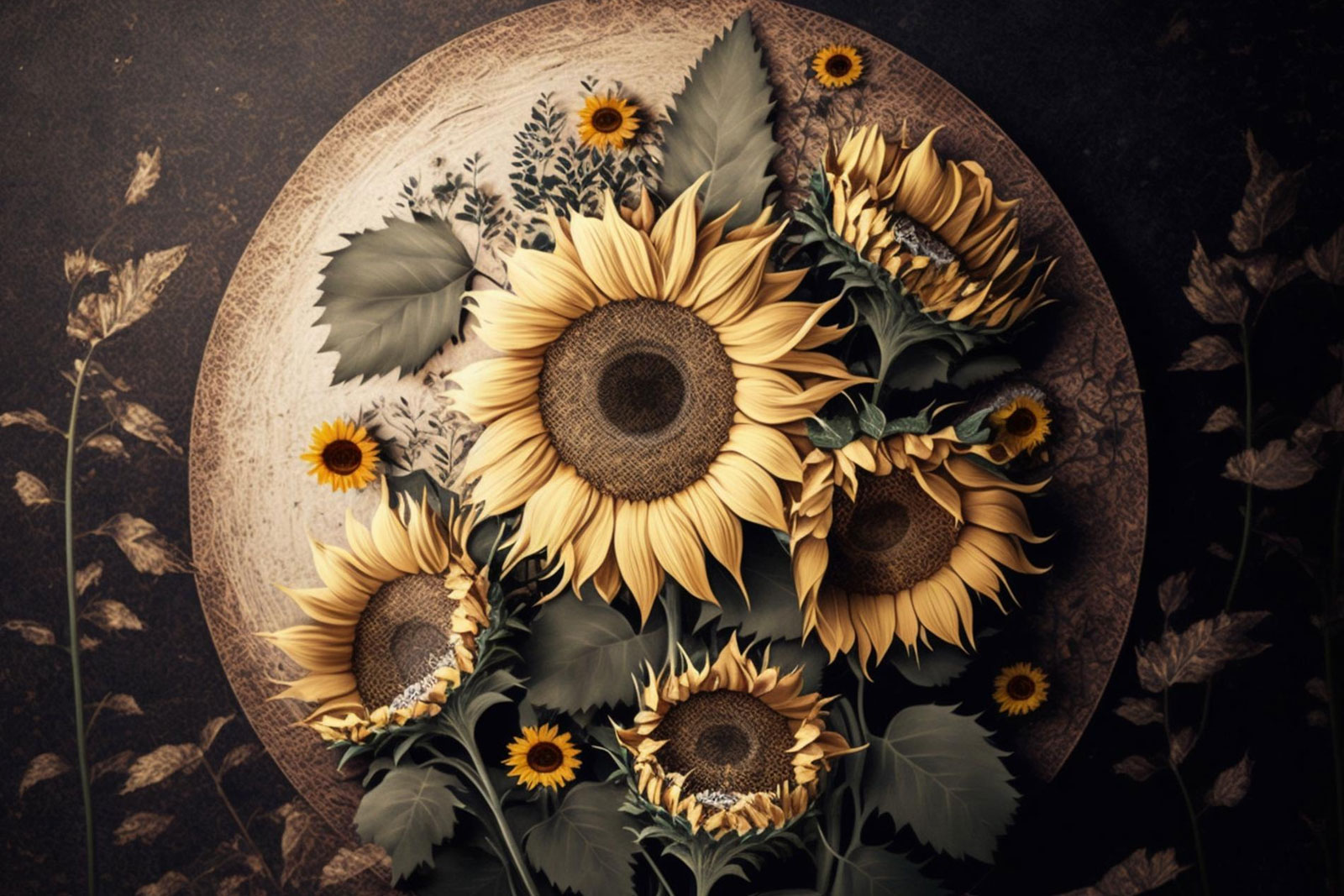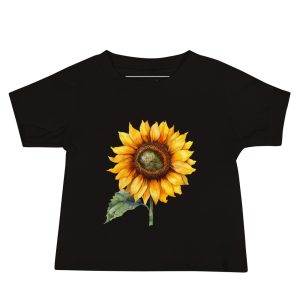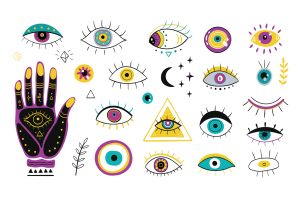The sunflower, a radiant emblem of summer, has captured hearts and imaginations across cultures and continents. Its towering presence and vibrant yellow petals evoke a sense of joy, warmth, and optimism that few other flowers can match. But beyond its captivating beauty lies a rich tapestry of sunflower symbolism, interwoven with themes of positivity, resilience, and spiritual significance.
In this comprehensive exploration of sunflower symbolism, we will delve into the many layers of meaning associated with this iconic bloom. From its sunny disposition and ability to uplift spirits to its unwavering resilience in the face of adversity, the sunflower has much to teach us about embracing joy, finding strength, and connecting with the natural world.
Introduction: The Radiance of Sunflowers and Their Symbolic Significance
Sunflowers (Helianthus annuus) are more than just a pretty face. With their tall, sturdy stalks and expansive golden heads, they stand as beacons of summer, basking in the sun’s warmth and radiating a cheerful energy that’s hard to resist. But beyond their aesthetic appeal, sunflowers hold a profound symbolic significance that has resonated with cultures throughout history.
The sunflower’s most striking feature, its large, round head, is a composite of numerous tiny flowers arranged in a spiral pattern. This intricate design, known as the Fibonacci sequence, is found throughout nature and is often associated with beauty, harmony, and the interconnectedness of all things.
In many cultures, the sunflower’s golden hue is seen as a symbol of the sun itself, representing warmth, vitality, and life-giving energy. Its upward-facing bloom, always seeking the sun’s light, is a powerful metaphor for optimism, faith, and the pursuit of goals.
Sunflowers as Symbols of Joy and Positivity: A Burst of Sunshine for the Soul
The sunflower’s vibrant yellow color is an instant mood booster. It evokes feelings of happiness, cheerfulness, and enthusiasm, making it a popular choice for floral arrangements and decorations. In many cultures, sunflowers are given as gifts to express joy, gratitude, and good wishes.
In China, sunflowers are associated with long life, good luck, and lasting happiness. They are often used in wedding ceremonies and celebrations to symbolize a bright and prosperous future. In Native American cultures, sunflowers were revered as symbols of the harvest, representing abundance, fertility, and nourishment.
The sunflower’s cheerful disposition and ability to brighten any space make it a natural symbol of positivity. It reminds us to look on the bright side, to find joy in the simple things, and to embrace the warmth and light that life has to offer. Whether you’re feeling down or simply need a dose of sunshine, the sunflower’s cheerful presence can uplift your spirits and inspire a more optimistic outlook.
Sunflowers as Emblems of Resilience and Strength: Standing Tall in the Face of Adversity
Sunflowers are not only known for their vibrant beauty but also for their resilience and strength. These hardy plants can thrive in challenging conditions, such as drought and heat, demonstrating an unwavering determination to survive and flourish.
One of the most remarkable aspects of sunflower symbolism is its heliotropic nature. Sunflowers are known to track the sun’s movement across the sky, a phenomenon known as heliotropism. This constant turning towards the light is a powerful metaphor for resilience, adaptability, and the pursuit of goals. It teaches us to remain focused on our aspirations, even when faced with challenges, and to always seek out the light that nourishes our souls.
The sunflower’s strong stem and deep roots also contribute to its symbolism of resilience. These features provide the plant with the stability and support it needs to withstand harsh weather conditions and thrive in diverse environments. In the same way, we can cultivate our own inner strength and resilience by grounding ourselves in our values, nurturing our relationships, and seeking out the support of loved ones.
Blossom with Joy: Out of the Fox’s Radiant Sunflower Collection
Infuse your life with the sun-kissed energy of sunflowers with Out of the Fox’s exclusive collection. Our thoughtfully curated range of sunflower-themed products celebrates the vibrant spirit and profound symbolism of these radiant blooms. From apparel and accessories that let you wear your sunshine wherever you go, to home decor that transforms your space into a haven of joy and positivity, our collection offers something for every sunflower enthusiast. Each piece is crafted with care and attention to detail, ensuring not only aesthetic appeal but also a connection to the deeper meaning behind this beloved flower. Embrace the sunflower’s cheerful symbolism and let its radiant energy brighten your world with Out of the Fox.
Sunflowers in Art, Literature, and Popular Culture: A Timeless Muse
The sunflower’s captivating beauty and rich symbolism have inspired countless artists, writers, and musicians throughout history. In the art world, the sunflower has been immortalized in the works of renowned painters like Vincent van Gogh, whose iconic “Sunflowers” series captures the flower’s radiant energy and emotional depth.
In literature, sunflowers have been used to symbolize hope, joy, and resilience. Poets and novelists have often employed sunflower imagery to convey themes of love, loss, and the cyclical nature of life.
In popular culture, the sunflower has become a ubiquitous symbol of summer, appearing in fashion, home decor, and even tattoos. Its cheerful image graces t-shirts, tote bags, and phone cases, while sunflower-themed home décor adds a touch of warmth and vibrancy to any space.
The Spiritual Significance of Sunflowers: A Connection to the Divine
For many spiritual traditions, the sunflower holds a deep spiritual significance, representing the sun’s life-giving energy and the divine light that illuminates our path.
In some cultures, the sunflower is associated with the solar deities, such as the Greek god Apollo and the Egyptian god Ra. It is seen as a symbol of spiritual enlightenment, representing the journey towards self-realization and the pursuit of truth.
The sunflower’s spiral pattern, which follows the Fibonacci sequence, is also considered a sacred symbol in many spiritual practices. This pattern, found throughout nature, is believed to represent the interconnectedness of all things and the divine order of the universe.
Sunflower Healing Properties and Benefits: Nurturing Body and Soul
Beyond their symbolic significance, sunflowers also offer a range of healing properties and benefits. Sunflower oil, extracted from the seeds, is rich in vitamins and antioxidants, making it a valuable addition to a healthy diet. It is also used in aromatherapy and natural remedies for its soothing and calming properties.
Sunflower petals can be used to make teas and infusions that are believed to promote relaxation, reduce stress, and boost mood. The bright yellow color of sunflower petals is also thought to have a positive impact on emotional well-being, promoting feelings of joy and optimism.
Conclusion: Embracing the Sunflower Symbolism and Spirit
The sunflower is a truly remarkable flower, embodying a wide range of meanings and symbolism across cultures and spiritual traditions. Its vibrant beauty, resilient nature, and association with joy, positivity, and spiritual growth make it a powerful symbol that resonates with people from all walks of life.
By embracing the sunflower’s radiant spirit, we can tap into its transformative power and cultivate a more joyful, resilient, and spiritually connected life. Whether you’re drawn to its sunny disposition, its unwavering strength, or its connection to the divine, the sunflower offers valuable lessons and inspiration for us all. So, let us celebrate the sunflower’s enduring symbolism and allow its radiant energy to brighten our lives and uplift our souls.
Eager to learn more about the fascinating sunflower? Delve into the details of its biology, cultivation, and cultural significance in the comprehensive Wikipedia article on the Common Sunflower.
https://en.wikipedia.org/wiki/Common_sunflower




















